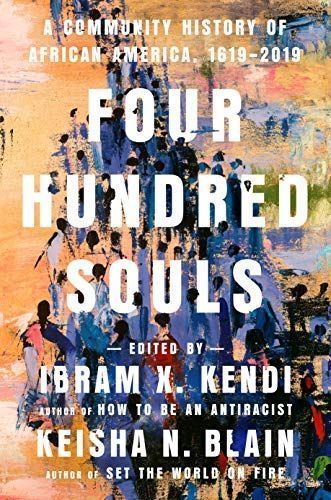
Four Hundred Souls A Community History of African America, 1619-2019
"A 'choral history' of African Americans covering 400 years of history in the voices of 80 writers, edited by the bestselling, National Book Award-winning historian Ibram X. Kendi and Keisha N. Blain. Last year marked the four hundredth anniversary of the first African presence in the Americas--and also launched the Four Hundred Souls project, spearheaded by Ibram X. Kendi, director of the Antiracism Institute of American University, and Keisha Blain, editor of The North Star. They've gathered together eighty black writers from all disciplines -- historians and artists, journalists and novelists--each of whom has contributed an entry about one five-year period to create a dynamic multivoiced single-volume history of black people in America"--
Reviews
Stephanie Ridiculous@stephanieridiculous
Elizabeth Moore@haddyaddy
Sahi K@sahibooknerd
Lindsay@schnurln
Kyra Ann Dawkins@kyra_ann_writes
Megan Parrott@meganparrott
Jenna Whitlow@jrayereads
Roz@irasobrietate
Amy Deuink@adeuink
Rebecca Roper@teaindecember
Allison Urban@urbanaj1
Catherine Nicolai@cnic
Abi Baker@wicdiv
luis martins@luismrmartins
Lea Rummel@lifemeetsliterature
Penelope@booksandmagic
Aaron Cohen@aaroncohen